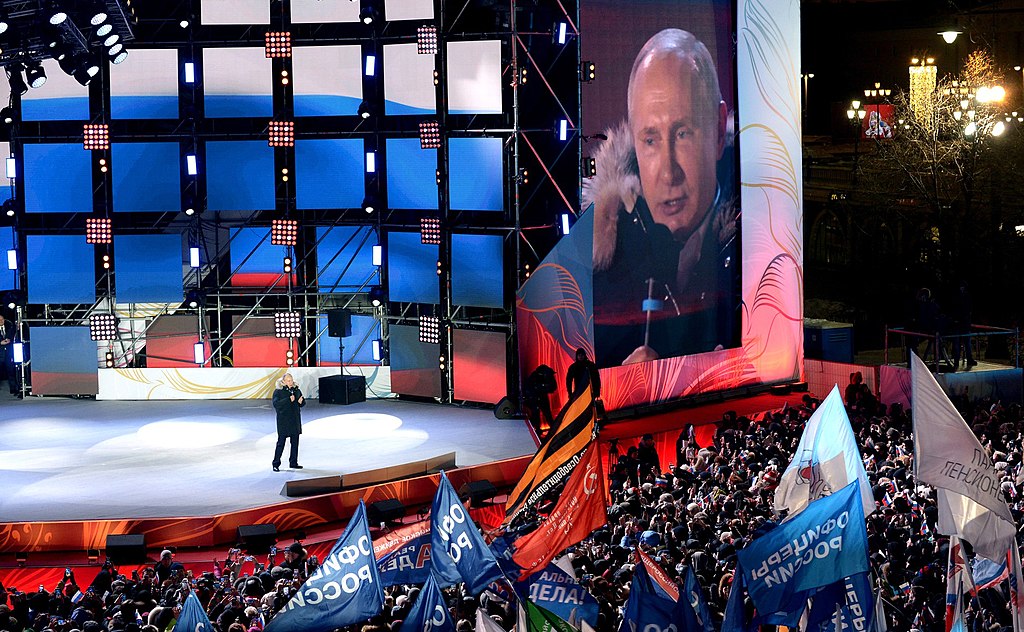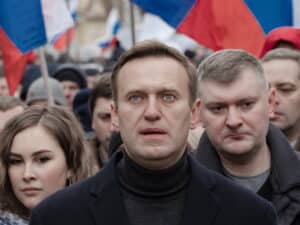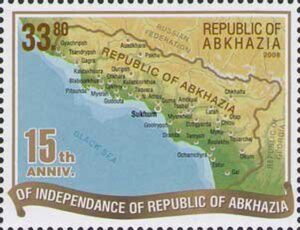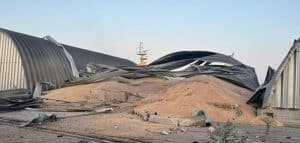Putin rallies in Moscow, 2018 (source: WikiMedia Commons)
As 9 May – Russian ‘Victory Day’ over Nazi-Germany – comes closer, Putin is looking for own victories he can present to the Russian people. Until now, this seems difficult. To the surprise of many, Ukrainian forces have resisted Russian forces across Ukraine, even forcing them to fully retreat around Kyiv. In the strategically important cities of Kherson and Mariupol, Ukrainian forces have long managed to keep Russian attackers at bay. In the few weeks left to the symbolically important 9 May, Putin looks to Eastern Ukraine, the Donbas, for success. Meanwhile, in Russian media, its citizens are prepared for the prospect of a long lasting conflict with its neighbor.
A new offensive in the east
On Wednesday April 20, Ukrainian President Volodymyr Zelensky said Russia launched a full-fledged assault on Eastern Ukraine, after transferring troops from Southern Belarus there. Russian military leaders wish to significantly weaken the Ukrainian army in this region, next to conquering the entire Donbas and Luhansk provinces. It is expected to be a bloody fight, as 40,000-50,000 battle-hardened Ukrainian forces are already stationed in the region. They are well-experienced, as they have fought Russian-backed separatists in the area since 2014.
Fears of a bloody, destructive war in Eastern Ukraine are also fueled as Putin appointed Alexander Dvornikov as the top commander of Russia’s “special military operation” in Ukraine. Dvornikov, infamously dubbed “the Butcher of Syria”, has a questionable reputation through destructive, ruthless warfare in Chechnya and Syria. A Human Rights Watch report on April 21 already showed in great detail how Russian forces appeared to commit a variety of war crimes against the population of Bucha, near Kyiv. It is expected that under the command of Dvornikov this might worsen in Eastern Ukraine, especially as Russian forces are expected to meet fierce resistance from Ukrainians.
In the southern port city of Mariupol, tens of thousands of civilians are stuck in a nearly-destructed city. Many fear for a humanitarian catastrophe as Russian artillery completely devastated the city. Especially worrisome are reports of deportations of Ukrainian civilians from this area into Russian “filtration camps”. These are difficult to verify, but the coerced deportation of civilians constitutes a crime against humanity under humanitarian law. In this regard, it is pivotal that all evidence is collected, and that those responsible can be put to trial in the future.
From authoritarianism to totalitarianism
Meanwhile, in Russia, society’s hearts and minds are prepared for the long haul in Ukraine as the Russian offensive is deprived from major victories. As an Ukrainian rocket attack downed the Russian Black Sea flagship ‘Moskva’, Russian propagandists raged on TV, dubbing it an ‘all-out war’ – a significant change in rhetoric from Putin’s ‘special military operation’. Across Russia, the ‘Z’ symbol is visible throughout society to support Russian troops. Putin’s campaign in Ukraine remains full of ironical forms of symbolism. Especially on 9 May, Russia’s ‘Victory Day’ over Nazi-Germany, Putin desperately needs a victory in his ‘denazification campaign’ in Ukraine to present at the year military parade in central Moscow.
Meanwhile, all forms of civil dissent are banned in Russia. Independent media are banned or have fled the country. People speaking out against the war have been imprisoned. Individuals who spread “fake news” about the military risk up to fifteen years in jail – even calling the invasion ‘a war’ is illegal. Undoubtedly, this causes far-reaching self-censoring by the Russian people.
As Andrei Kolesnikov, fellow at Carnegie Moscow, said, Russia has “moved from authoritarianism into hybrid totalitarianism”. Earlier, Putin’s authoritarian leadership requested silence from society as he would deliver them some sort of societal stability. Now, Putin and the Kremlin actively mobilize the Russian masses around the Ukrainian war. Moscow prepares the Russian people to give Putin full control to achieve his goal – the restoration and protection of ‘USSR-like’ Russia as an internationally respected world power. In this way, Putin’s political leadership over the Russian people is moving into a new, worrying dimension.
Prepare for the long haul
Western sanctions and ‘defensive’ weapon deliveries were mostly focused of deterring and punishing Russia for continuing its war against Ukraine in the short-term. However, as some stock markets have recovered and Putin says the economy has withstood ‘the Western economic blitzkrieg’, western actors should be adaptive in their strategies in preparation for a long protracted conflict on its borders. Russia has shown in various contexts – South Ossetia, Syria, the Donbass – that it is experienced in fueling and utilizing these destructive, protracted wars for its own merit. And while various Kremlin insiders anonymously told Bloomberg that they question Putin’s strategies, nothing seems to deter the Russian dictator on the short-term from continuing these destructive policies.
Sources: BBC Bloomberg Carnegie Moscow The Guardian I The Guardian II Slate.com
Photo: WikiMedia Commons



